Search
Did you mean: Bes?
Remove Ads
Advertisement
Summary 
Loading AI-generated summary based on World History Encyclopedia articles ...
Search Results
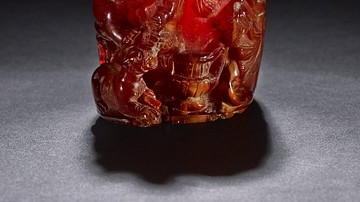
Definition
Amber in Antiquity
Amber, the fossilised resin of trees, was used throughout the ancient world for jewellery and decorative objects. The main source was the Baltic region where amber, known to mineralogists as succinite, was washed up onto beaches and easily...

Image
Roman Amber Perfume-pot
A perfume-pot made from amber and depicting cupids and a panther. Roman, Aquileia, 100-120 CE. (British Museum, London)
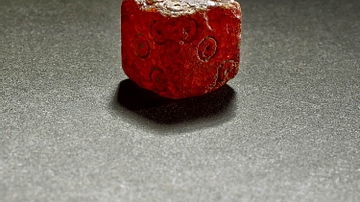
Image
Roman Amber Dice
A Roman dice made from amber. 1st-2nd century CE. From Aquileia, central Italy. (British Museum, London)
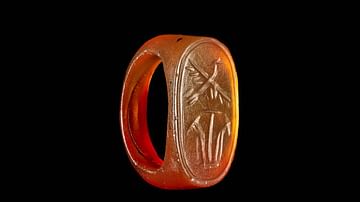
Image
Egyptian Amber Ring
A finger ring made from amber. Egypt, New Kingdom Period. (British Museum, London)
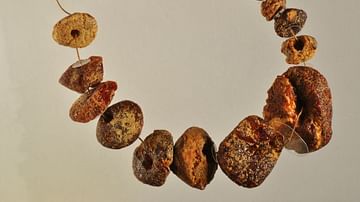
Image
Archaic Greek Amber Necklace
An amber necklace from Archaic Greece, 600-480 BCE. Potidaea, ancient Macedon. (British Museum, London)
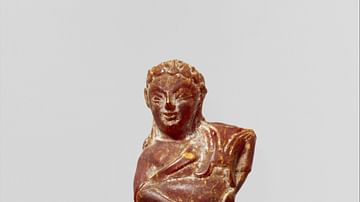
Image
Etruscan Amber Figurine
A figurine of a woman holding a child. Amber, 5th century BCE, Etruscan. Height: 6.3 cm. (Metropolitan Museum of Art, New York)
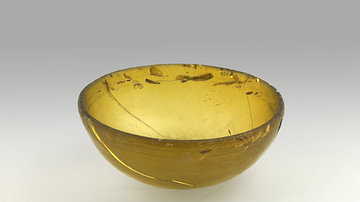
Image
Levantine Amber Glass Wine Cup
This beautiful amber-colored glass wine cup (diam. ca. 15 cm), with its fine horizontal grain on the edge, is an early example of moulded glass produce from the Levant (ca. 100 BCE - 100 CE; APM inv. no. 14.023). It had to be placed in a...
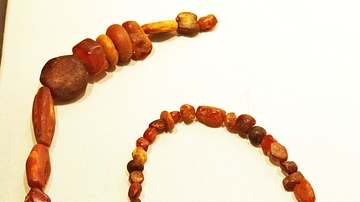
Image
Merovingian Amber Necklace
This necklace made from amber was found in a Merovingian tomb located in Sint-Gillis-bij-Dendermonde, Belgium. It dates from the second half of the 5th century to the early 6th century CE. (Musée du Cinquantenaire, Brussels)
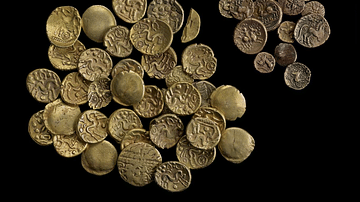
Article
Trade in Ancient Celtic Europe
Trade in raw materials and manufactured goods in ancient Celtic Europe was vibrant and far-reaching, particularly regarding the centre of the continent where there was a hub of well-established trade routes. As the Celts' territory expanded...
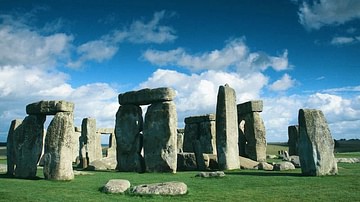
Article
The Stonehenge Burials
A great deal has been written about why the prehistoric monument of Stonehenge, in Wiltshire, southern England, was constructed. Perhaps it was designed as a temple to the ancestors, an astronomical calendar, a healing centre or a giant computer...